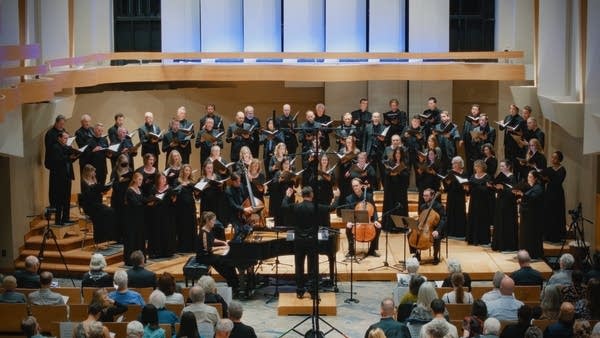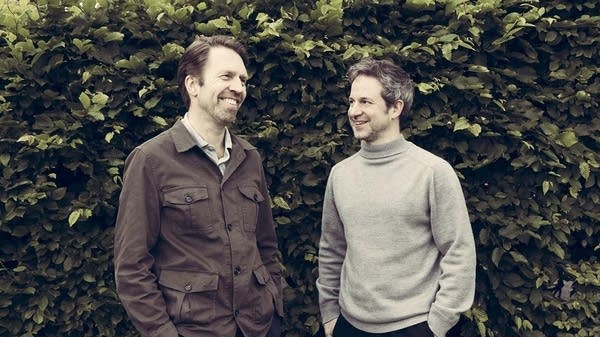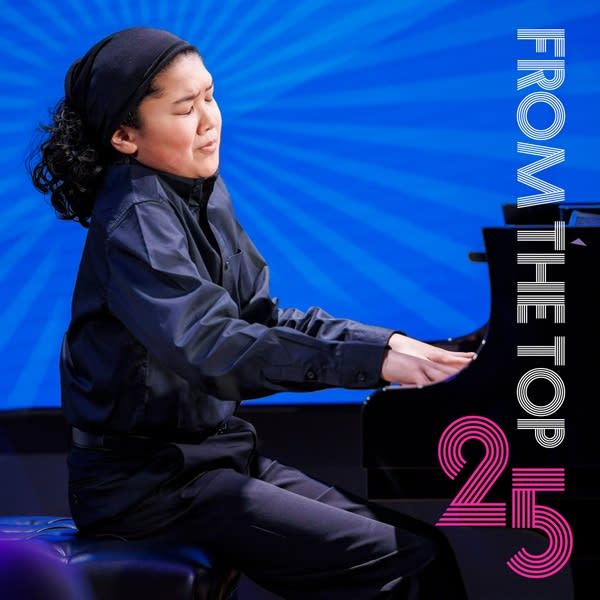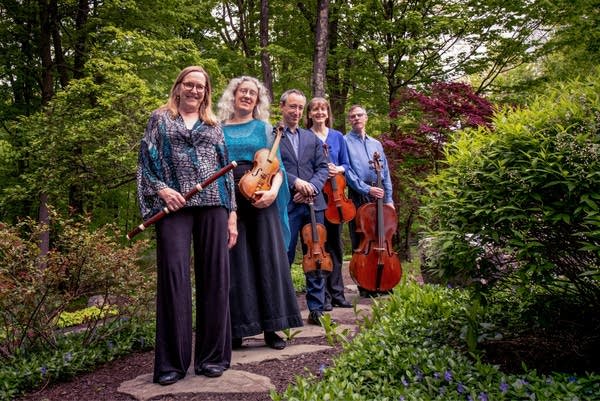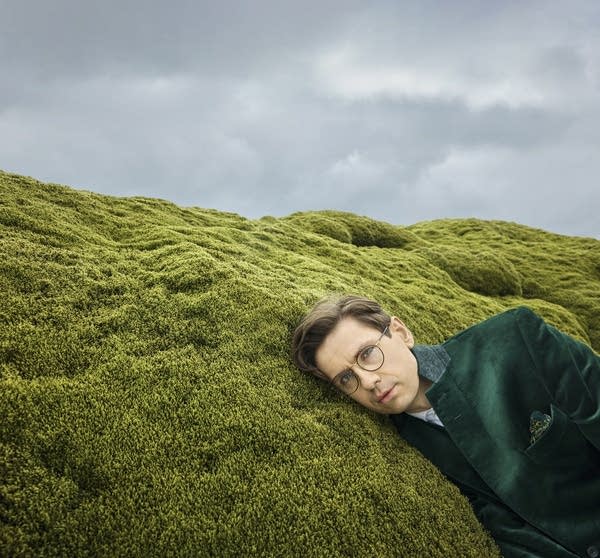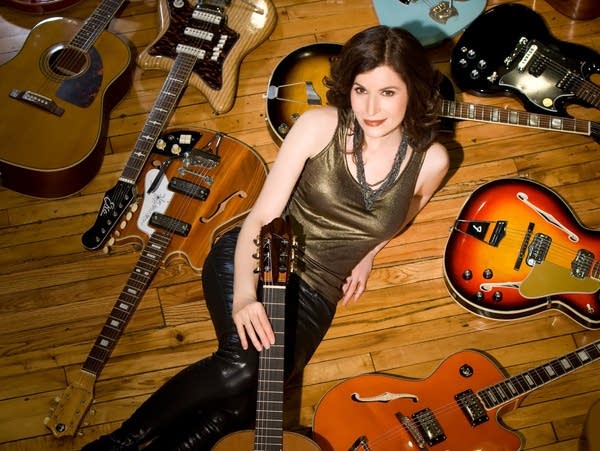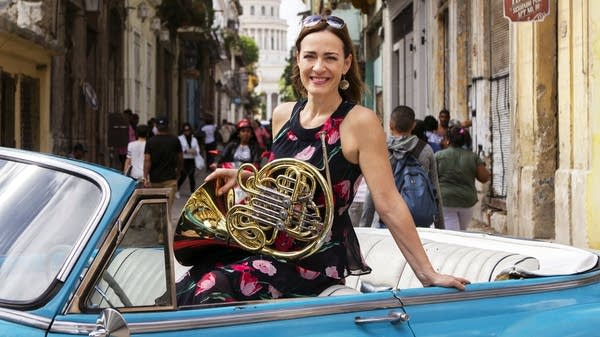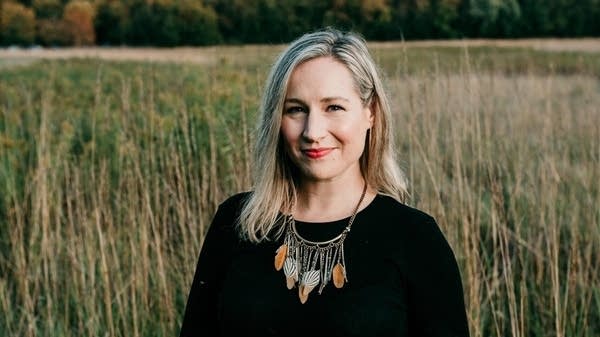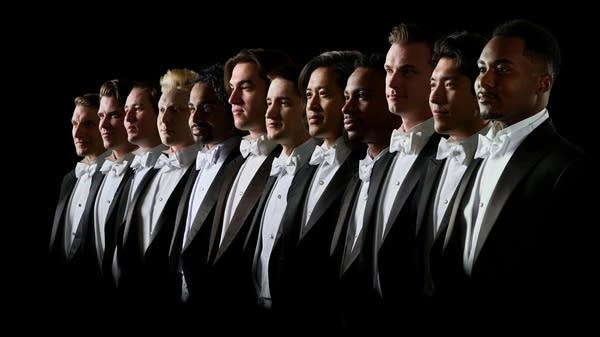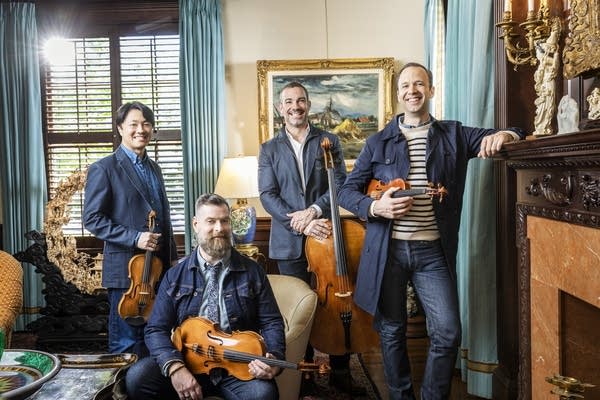Isabel Leonard & Sharon Isbin - Alma Española (Bridge)
"I think that it's one of the best things you can ever do as a person, as a musician, is really just stay open to the world and be very welcoming to wonderful ideas as they happen."
Guitarist Sharon Isbin has built her career on being open to all possibilities. "You know it's impossible to guess what's around the corner," she explains. "I've been so fortunate to meet people like Tom Jobim from Brazil and work with him. I have a trio called Guitar Passions with Stanley Jordan, the jazz player who's remarkable. And Romero Lubambo from Brazil and we'll be continuing to perform together. We've done a lot of touring and a recording called Guitar Passions. Recording with Joan Baez and Mark O'Connor — I never expected that would ever happen but what a dream it was on Journey to the New World. So, there's just so much out there that I like to just keep wide eyed, open eared and see what happens."

What came around the corner about three years ago was an invitation from mezzo-soprano Isabel Leonard, asking Isbin to collaborate on Spanish songs. They recently captured their experience on a new recording titled, Alma Española, which means "Spanish Soul."
It's been more than four decades since the last major recording of Spanish art songs featuring a guitarist and native Spanish speaker was released. Sharon says that's one reason she leapt at the opportunity.
"Isabel grew up in a household where speaking Spanish was her native language along with English. Her mother is from Argentina. It is really challenging to have that combination and pairing it with guitar, so I think that it was just really fortuitous that we could come together on this and music that we both love. And when you think about the music, it's really all inspired by the guitar and there are a lot of things in this whole program that when you look at the Garcia Lorca songs for example … he never wrote them down. And the only way we have access to what he had in his mind in his arrangements was an old early 1930s recording he did with another Argentinian singer called La Argentinita.

"So that recording is our access to his arrangements. And of course, that gives me a lot of freedom as well. And all the composers are connected in some way on this album. In fact, more than half of them were either forced to flee or [were] murdered by fascist governments. So, the backstories of the composers is fascinating as well. And their interactions with each other and my interactions with many of them."
I want to go back to the Lorca pieces that you arranged. This is a world premiere. You were talking about how he didn't like to write his music down. What I'm intrigued about — when you and Isabel performed these works, you were spontaneous when you performed them. Can you talk about how you did that? To go with the flow while you're performing them … how does that work?
"Well, we met a number of times to rehearse and go over the lyrics and she really wanted to make sure that I understand what was happening in each stanza and how best to communicate that. So there was something very delicate and sensuous that would create one kind of guitar notation, whereas if it was something very loud and flamenco-like and big strums that would complement the actual words … that would be another direction I would go in. So we really worked this through. Revised it, revised it, and then once we took it on the road, because we've been performing together now for three years, all kinds of venues from Carnegie Hall to the Kennedy Center. And each time we might discover something new. So being able to road test it like that in addition to having the rehearsals at the beginning and the time to create these arrangements was really very valuable to do before actually going into a recording studio. There's one song, for example, where a young man heads out in search of a wife and instead, by chance, discovers his long lost sister. So the very final stanza Rosalinda herself is speaking and Isabel suggested that I go up an octave to be that voice."
There's another set of songs on the recording which have been a regular part of Isabel Leonard's repertoire. And you created the arrangements of these by Xavier Montsalvatge.
"I had actually met Montsalvatge some years ago in New York when these pieces were being performed live on stage at Avery Fisher and with orchestra and this version with piano is what I base mine on. And there were two in particular: a slow, beautiful lullaby which ends the whole recording, and a very fast dance which is actually about a drunken fellow. It's funny because that one is not much more than a minute and a half long but it took so many hours and hours and hours of work to transcribe it and learn it because it is such a challenging piece technically but really fun to perform. In fact, there was one concert we did where Isabel started dancing on the stage with a little kid who had come up so we really have a lot of fun with our audiences."
Now how do you think the guitar arrangements have enhanced these pieces?
"One of the things that has always inspired me as a player is to listen to singers. Why is that. Because the voice is the ultimate and how you can be expressive with shaping and legato and the beautiful sounds between notes so that the guitar, unlike the piano, can actually create sound between notes that imitates the human voice. We call it portamento. So if you listen to some of my playing - you can listen to that for example at the beginning of the Granada Danza española or throughout the Capricho arabe, hear that little wisp of sound that I use as a nuance between the notes. It's kind of like the spices you add to a delicious stew. If you didn't do that it would be a bit bland. So by doing that in the right way I can become a voice as well. Also, one of the advantages I have as a guitarist and playing with my fingernails and the flesh of the finger as opposed to a pick is that I have a really infinite variety of colors that I can draw upon. It's like painting on a canvas and all of that adds to the atmosphere and the expression of the music."
To hear the rest of my conversation about Alma Española with Sharon Isbin, download the extended podcast on iTunes or wherever you get your podcasts.
Resources
Sharon Isbin - official site
Isabel Leonard - official site
Love the music?
Show your support by making a gift to YourClassical.
Each day, we’re here for you with thoughtful streams that set the tone for your day – not to mention the stories and programs that inspire you to new discovery and help you explore the music you love.
YourClassical is available for free, because we are listener-supported public media. Take a moment to make your gift today.
Your Donation
About New Classical Tracks®
Host Julie Amacher provides an in-depth exploration of a new classical music release each week.
Subscribe on Apple Podcasts, TuneIn, Radio Public, or RSS.

